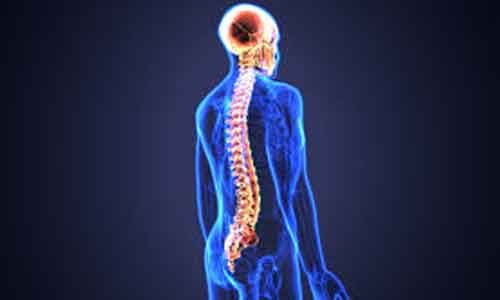- Home
- Medical news & Guidelines
- Anesthesiology
- Cardiology and CTVS
- Critical Care
- Dentistry
- Dermatology
- Diabetes and Endocrinology
- ENT
- Gastroenterology
- Medicine
- Nephrology
- Neurology
- Obstretics-Gynaecology
- Oncology
- Ophthalmology
- Orthopaedics
- Pediatrics-Neonatology
- Psychiatry
- Pulmonology
- Radiology
- Surgery
- Urology
- Laboratory Medicine
- Diet
- Nursing
- Paramedical
- Physiotherapy
- Health news
- Fact Check
- Bone Health Fact Check
- Brain Health Fact Check
- Cancer Related Fact Check
- Child Care Fact Check
- Dental and oral health fact check
- Diabetes and metabolic health fact check
- Diet and Nutrition Fact Check
- Eye and ENT Care Fact Check
- Fitness fact check
- Gut health fact check
- Heart health fact check
- Kidney health fact check
- Medical education fact check
- Men's health fact check
- Respiratory fact check
- Skin and hair care fact check
- Vaccine and Immunization fact check
- Women's health fact check
- AYUSH
- State News
- Andaman and Nicobar Islands
- Andhra Pradesh
- Arunachal Pradesh
- Assam
- Bihar
- Chandigarh
- Chattisgarh
- Dadra and Nagar Haveli
- Daman and Diu
- Delhi
- Goa
- Gujarat
- Haryana
- Himachal Pradesh
- Jammu & Kashmir
- Jharkhand
- Karnataka
- Kerala
- Ladakh
- Lakshadweep
- Madhya Pradesh
- Maharashtra
- Manipur
- Meghalaya
- Mizoram
- Nagaland
- Odisha
- Puducherry
- Punjab
- Rajasthan
- Sikkim
- Tamil Nadu
- Telangana
- Tripura
- Uttar Pradesh
- Uttrakhand
- West Bengal
- Medical Education
- Industry
Researchers find new therapy for spinal cord injury

China: An article published in Experimental Biology and Medicine describes a new therapeutic strategy for treating spinal cord injury. The study, led by Drs. Hu and Lu, First Affiliated Hospital of Bengbu Medical College in Bengbu (China), reports that the small molecule P7C3 promotes recovery in an animal model of spinal cord injury.
Spinal cord injury (SCI) is a devastating neurological disorder resulting in impaired neurological function. Currently, there are no effective treatment options for patients with SCI. However, therapeutic strategies that promote the survival of neurons and oligodendrocytes may prevent long-term neurological dysfunction. P7C3 is an orally bioavailable small molecule that crosses the blood-brain barrier and promotes neuronal survival in animal models. Pre-clinical studies have confirmed P7C3's protective effects in Parkinson's disease, traumatic brain injury, peripheral nerve injury, amyotrophic lateral sclerosis, age-associated cognitive decline, and neurodegeneration-associated depression. Nonetheless, P7C3 has not been evaluated as a treatment option for SCI.
In the current study, Dr. Hu and colleagues assessed the effects of P7C3 in an animal model of SCI. Animals treated with P7C3 exhibited improved neuron and oligodendrocyte survival, locomotor function, tissue repair, and myelination when compared to untreated animals. Collectively, these results demonstrate that P7C3 promotes neuronal survival and function recovery in SCI. Dr. Hu said, "The discovery of neuroprotective effects of P7C3 against rat SCI suggests that P7C3 treatment could be a promising strategy for SCI."
Dr. Steven R. Goodman, Editor-in-Chief of Experimental Biology & Medicine, said "Hu and colleagues demonstrate that P7C3 improves the neurologic outcome in rats with spinal cord injury (SCI). P7C3, a small molecule aminopropyl carbazole, deserves future study as a potential therapeutic impacting long-term outcome in SCI."
The bottom line of the study is -- P7C3 plays a role in improving neurological outcomes following SCI.
The study, "Neuroprotective effects of P7C3 against spinal cord injury in rats," is published in the journal Experimental Biology & Medicine.
DOI: https://doi.org/10.1177/1535370219888620
Hina Zahid Joined Medical Dialogue in 2017 with a passion to work as a Reporter. She coordinates with various national and international journals and association and covers all the stories related to Medical guidelines, Medical Journals, rare medical surgeries as well as all the updates in the medical field. Email: editorial@medicaldialogues.in. Contact no. 011-43720751
Dr Kamal Kant Kohli-MBBS, DTCD- a chest specialist with more than 30 years of practice and a flair for writing clinical articles, Dr Kamal Kant Kohli joined Medical Dialogues as a Chief Editor of Medical News. Besides writing articles, as an editor, he proofreads and verifies all the medical content published on Medical Dialogues including those coming from journals, studies,medical conferences,guidelines etc. Email: drkohli@medicaldialogues.in. Contact no. 011-43720751


